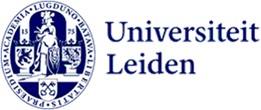Views
Report on the ABLI/HCCH 4th Joint Webinar on “Cross-Border Commercial Dispute Resolution – Electronic Service of Documents and Remote Taking of Evidence“
by Achim Czubaiko-Güntgen, Research Fellow („Wissenschaftlicher Mitarbeiter“) and PhD Candidate, supported by the German Scholarship Foundation, Institute for German and International Civil Procedural Law, University of Bonn.
With the fourth instalment in their ongoing webinar series on “Cross-Border Commercial Dispute Resolution”, the Asian Business Law Institute (ABLI) and the Hague Conference on Private International Law (HCCH) returned to the topic of “Electronic Service of Documents and Remote Taking of Evidence”. Contrary to the first webinar in 2021, this session focussed not solely on the HCCH 1970 Evidence but equally on the HCCH 1965 Service Convention. Having finally overcome the immediate constraints of the Covid-19 pandemic, this time the renowned speakers were able to elaborate more on the long-term development and visions in the practice of the two legal instruments with regard to their respective areas of law.
The Nigerian Court of Appeal Upholds South African Choice of Court and Choice of Law Agreement
Case Citation:
Sqimnga (Nig.) Ltd v. Systems Applications Products (Nig.) Ltd [2025] 2 NWLR 423 (Court of Appeal, Lagos Division, Nigeria)
The dispute in this case arose between two Nigerian companies, Sqimnga Nigeria Ltd (the appellant) and Systems Applications Products Nigeria Ltd (the respondent). Both parties had entered into a Master Service Agreement in Nigeria, relating specifically to software solutions. A critical provision of this agreement stipulated that the laws of South Africa would govern any disputes, and further, that South African courts would possess exclusive jurisdiction to hear any matters arising from the agreement.
When a disagreement emerged between the parties, Sqimnga Nigeria Ltd initiated legal proceedings at the Lagos State High Court. The respondent immediately contested the jurisdiction of the Nigerian court, relying on the contractual clause mandating the use of South African law and courts. Read more
Silence Is Not Submission: Chinese Court Refuses to Enforce U.S. Default Judgment Rendered in Breach of Arbitration Agreement

Written by Dr. Meng Yu, lecturer at China University of Political Science and Law, and co-founder of China Justice Observer.
ABSTRACT
In around 2019, a Chinese court in Hebei Province refused to enforce a US default monetary judgment from a California court on the grounds that a valid arbitration agreement was in place (Sunvalley Solar Inc. v Baoding Tianwei Solarfilms Co. Ltd. (2019) Ji 01 Xie Wai Ren No. 3). This decision underscored the court’s reliance on the arbitration agreement’s validity, even though a subsequent legislative proposal to include arbitration agreements as an indirect jurisdictional filter in China’s Civil Procedure Law (2023 Amendment) was ultimately not adopted.
News
Fourth Issue of the Lloyd’s Maritime and Commercial Law Quarterly for 2025
The fourth issue of the Lloyd’s Maritime and Commercial Law Quarterly for 2025 has recently been published. It contains the following articles, cases notes and book review.
Michael Howard, “The True History of the Origin of the Mareva Injunction or Freezing Order”
Fifty years ago, in 1975, a revolutionary innovation occurred in English procedural law, the introduction of what is officially named the freezing injunction, formerly and to some extent even now known as the Mareva injunction. It was the consequence of two decisions of the Commercial Court, the Karageorgis and Mareva cases. The thesis of this article, lightly camouflaged, is that these cases and this change were brought about by a combination of four factors which are present in most such developments of the common law: the personal, the institutional, the technical legal and the accidental. It is an attempt to present all of them and to show that the first and particularly the last were disproportionately large contributors.
Masood Ahmed, “State Immunity and the New York Convention”
Adrian Briggs, “Book Review of Hong Kong Private International Law” (by Wilson Lui and Anselmo Reyes)
My views
I read the interesting—but in my view unconvincing—critical review by Emeritus Professor Adrian Briggs of “Private International Law in Hong Kong” (by Wilson Lui and Anselmo Reyes). My reading of the review is that Briggs laments the authors’ limited engagement with English sources, suggesting that because Hong Kong’s private international law is not as fully developed as Singapore’s, English texts and cases should operate as gap-fillers.
I take a different view. I am pleased to see Asian private international law scholars asserting a more autonomous and context-sensitive approach to developing their conflict-of-laws rules. That intellectual independence is healthy for the discipline, and it is precisely the direction I believe African private international law should pursue.
Virtual Workshop (in English) on December 5, 2025: Béligh Elbalti on “The Double Face of Private International Law: Reconsidering Its Colonial Entanglements”

On Friday, December 5, 2025, the Hamburg Max Planck Institute will host its monthly virtual workshop Current Research in Private International Law at 11:00 a.m. – 12:30 p.m. (CEST). Dr. Béligh Elbalti (Osaka University) will speak, in English, about the topic
“The Double Face of Private International Law: Reconsidering Its Colonial Entanglements”
In its general discourse, private international law (conflict of laws) is often presented as a discipline grounded in principles such as sovereignty, the equality of states, and comity. Its defining traits are said to flow from this premise of equality between legal orders, including its claim to neutrality, its pursuit of international harmony in cross-border cases, and its role in coordinating diverse legal systems. However, it is striking that private international law developed in an international context marked by domination, inequality, and subordination, a context that challenged the very premises on which the discipline claimed to rest.
Within this broader context, private international law appears to have played a dual role. On the one hand, it served as an instrument of colonial domination, particularly by denying its foundational premises to legal systems not regarded as “civilized”. In these contexts, instead of applying the ordinary methods of private international law, alternative mechanisms were employed to manage foreignness, most notably through systems of extraterritoriality – whether in the form of consular jurisdiction, mixed courts, or foreign courts operating in colonized or semi-colonized territories. On the other hand, private international law also functioned as an instrument for restoring sovereignty and achieving independence. The abolition and dismantling of extraterritorial regimes required colonized and semi-colonized states to meet the substantive and institutional conditions considered necessary for recognition as a “civilized nation”. This included, among other reforms, the establishment of a functioning system of private international law, alongside the adoption of substantive and procedural legal frameworks that guaranteed equal rights and protection for foreigners.
The presentation will be followed by open discussion. All are welcome. More information and sign-up here.
If you want to be invited to these events in the future, please write to veranstaltungen@mpipriv.de.
Call for papers: Bridging Jurisdictions: Rethinking Commercial Conflicts of Laws 10 Years After Brexit
by Dr Georgia Antonopoulou (University of Birmingham) and Dr Ekaterina Pannebakker (Leiden University)
On 14 May 2026, the roundtable Bridging Jurisdictions: Rethinking Commercial Conflicts of Laws 10 Years After Brexit will take place at the University of Birmingham, in the UK. This roundtable will focus on highlighting cooperation opportunities in commercial conflicts of laws between the United Kingdom and the EU in light of current developments including jurisdictional competition, digitisation, sustainability, and international sanctions. The roundtable will feature policymakers and internationally renowned scholars.
We invite submissions of draft articles from researchers and academics, especially at their early stages of their careers, on private international law in the aftermath of the Brexit. The applications should be in English. Kindly email your application to Dr E. Pannebakker (e.s.pannebakker@law.leidenuniv.nl) and Dr G. Antonopoulou (g.antonopoulou@bham.ac.uk). The submissions should include:
- an abstract (max. 200 words);
- a draft or a detailed outline of the contribution (max. 5,000 words);
- a bio/curriculum vitae of the author (max. 2 pages long).
The deadline for submission is 1 February 2026. The selected participants will be notified by the end of February 2026.
During the roundtable, the selected participants will give a presentation of their articles and then receive feedback. Accepted papers will be considered for publication in an edited special journal issue in an international review. The roundtable will cover reasonable costs of travel, accommodation, and meals for the selected participants.
Possible topics include:
- Jurisdictional competition including arbitration and international commercial courts;
- PIL in the United Kingdom post-Brexit;
- The impact of digitisation on private international law (applicable law and/or jurisdiction);
- Sustainability and private international law;
- The impact of trade sanctions on private international law.
We particularly welcome applications from underrepresented groups. Special consideration will be given to female participants vested with childcare and/or other domestic responsibilities.
This project has received funding from the Birmingham – Leiden universities Strategic Collaboration Fund.
We are looking forward to receiving your application!





